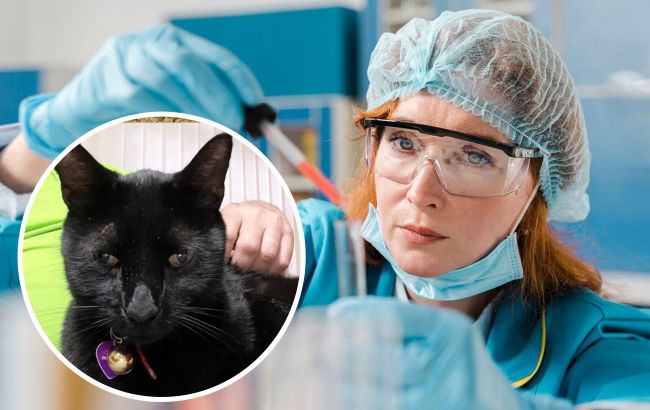Cat helps US scientists discover new virus
 Pepper the cat helped to make an important discovery (collage: RBC-Ukraine)
Pepper the cat helped to make an important discovery (collage: RBC-Ukraine)
Scientists had to conduct an unexpected study due to the cat's normal behavior. As a result, scientists discovered the first-ever jeilongvirus found in the US, identifying a virus of a previously unknown type, according to IFL Science.
How cat contributed to the discovery
It all began when a cat named Pepper from Gainesville gave his owner a lifeless mouse. While it might seem an unwelcome offering to many, it was a welcome find for Pepper’s owner, virologist John Lednicky.
Lednicky, a virus expert, was conducting research to determine if rodents are carriers of the deerpox virus, which causes characteristic skin lesions in animals. The scientist was eager to use this unexpected specimen for his studies.
However, when Lednicky and his team examined the mouse, they found no traces of the deerpox virus. Instead, they were startled to discover the rodent was infected with a jeilongvirus — a type previously documented only in rodents, cats, and bats across Europe, South America, Asia, and Africa, but never in the United States. However, Pepper and Lednicky's team did not only discover the first jeilongvirus in a new area.
Genetic testing revealed that this particular strain was distinct from others in its group and had not been previously identified. The newly discovered virus was consequently named the Gainesville rodent jeilongvirus 1 (GRJV1).

US scientists discovered the virus thanks to a cat (illustrative photo: Freepik)
As Emily DeRuyter, who described the discovery, noted, the find was a complete surprise to scientists as they hadn’t been actively searching for it. She emphasized that this is a vivid reminder of how many unknown viruses may circulate in close proximity to humans.
What is known about the virus
Jeilongviruses belong to a broader viral family known as paramyxoviruses. These viruses can be transmitted between mammalian species and cause respiratory infections in humans.
Lednicky’s team infected cells from various species with GRJV1 to assess whether it could spread similarly. Their tests showed that the virus replicated effectively in the cells of rodents, humans, and monkeys, indicating it could indeed cross species lines.
However, this doesn’t imply a high likelihood of transmission; for instance, Pepper remained unaffected. Additionally, most people have minimal contact with wild rats and mice, the virus’s primary carriers. Scientists caution that much research still lies ahead.
Also, read how "ChatGPT for pets" can help understand the thoughts of pets.

